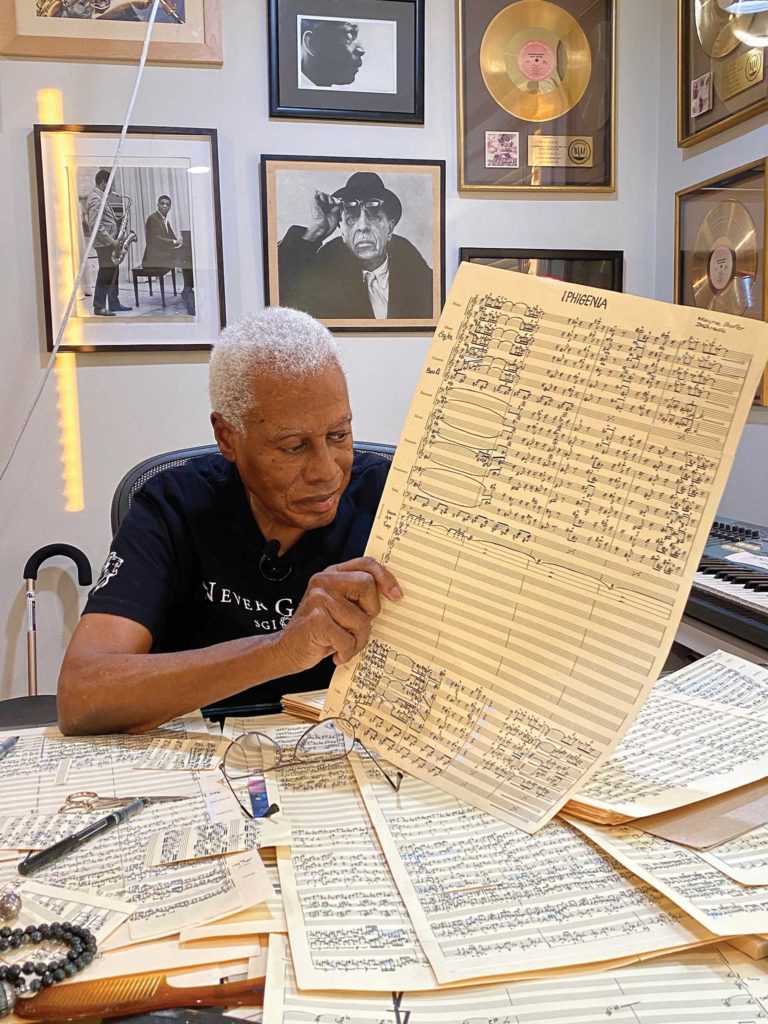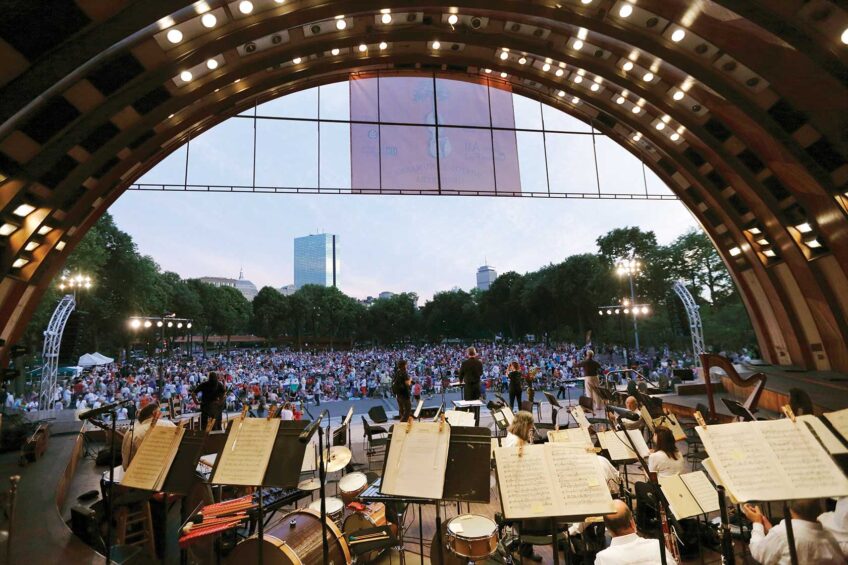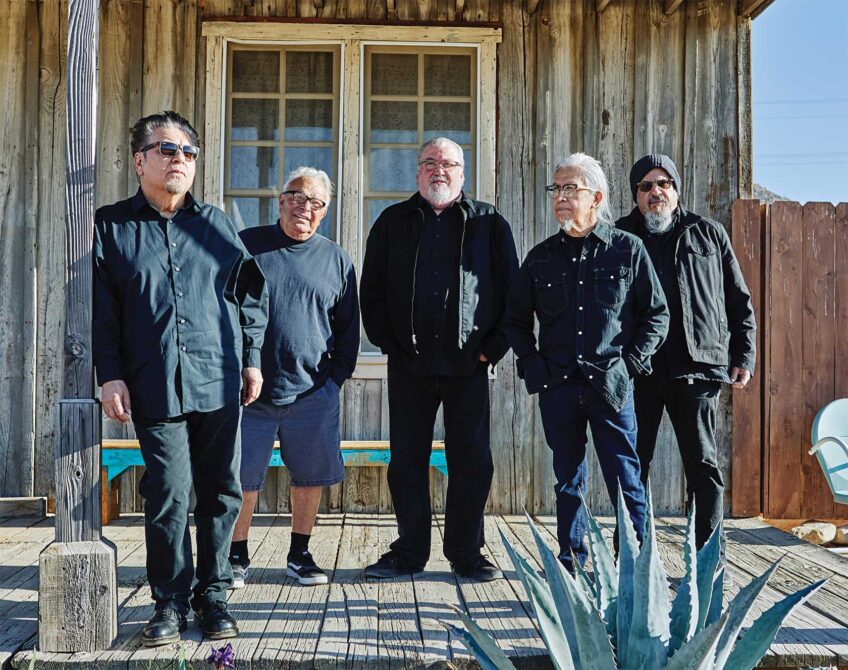A performance of mythical proportions
‘Iphigenia’ at ArtsEmerson questions the structures of myth and opera

Audiences will gather live at ArtsEmerson for the first time after a 20-month pandemic hiatus to see the world premiere of “Iphigenia.” Composer Wayne Shorter and librettist esperanza spalding have reimagined the myth with a powerful score and a new perspective on one of the sacrificial daughters of Greek lore.
There are many adaptations of the myth, but the story follows a similar plot. Agamemnon offends Artemis while on his way to the Trojan war. As punishment, Artemis manipulates the winds so that his fleet cannot get to the battleground. In order to break this magic, Agamemnon must sacrifice his eldest daughter, Iphigenia. In many versions of the story, she is in fact killed, but even in those where she survives, all of that happens off-stage.
According to spalding, a jazz bassist, singer and composer, the opera was originally Shorter’s vision. She came on to support him, and as the process went on, grew intrigued by the version of Iphigenia that Shorter seemed to be seeing.
“My interest was really piqued as I started to imagine what wasn’t caught or portrayed or revealed by her in any of these stories, because they’ve been written by men and translated by men,” says Spalding. “I started to get really excited about the other implications of her character and her myth, particularly holding her in the awareness that she is a figment of somebody’s imagination.”
The process began with Shorter’s composition, a powerful blend of classical music and jazz. From there, spalding began crafting the libretto around the music. But she didn’t do it alone.
“One of the things that came up while I was writing was a desire to not reduce her story to my understanding of it,” says spalding. “So I invited three other writers, three other women from different lineages and parts of the world, to write her voice.” In enlisting other artists to participate, spalding both removed herself from the risk of taking over the character’s voice and strengthened Iphigenia by threefold.
This “Iphigenia” is not another retelling of the myth. It’s an exploration of the forms of myth and opera themselves, demanding answers for the way these narratives murder women for the drama of it. Rather than put forward a new and contemporary version of the character, the creative duo asks, what would a more equitable world look like in which Iphigenia had her own personhood?
“I think we will succeed in our goal if people just receive the music,” says spalding, “and a sense of being soaked in this music and in the voices and any elements in the story that are nourishing to them.”









